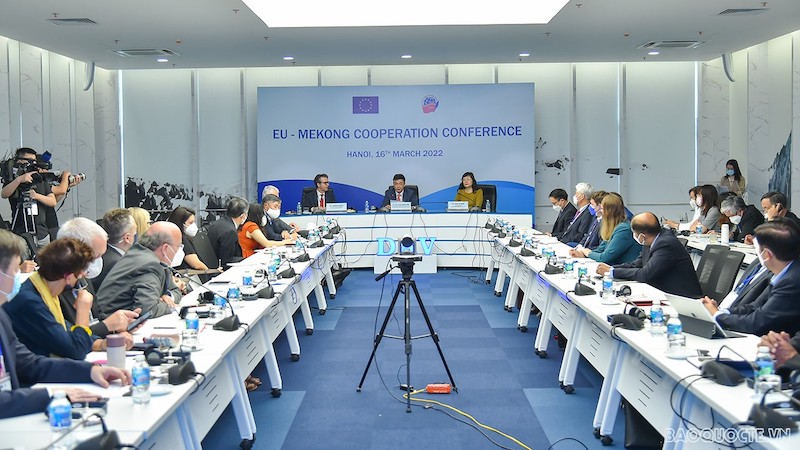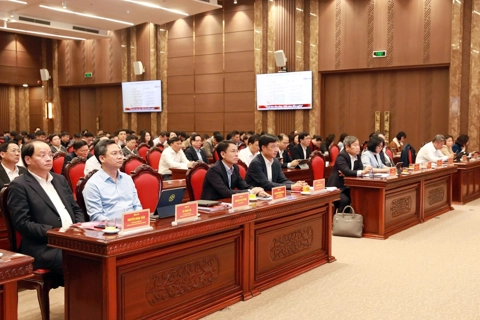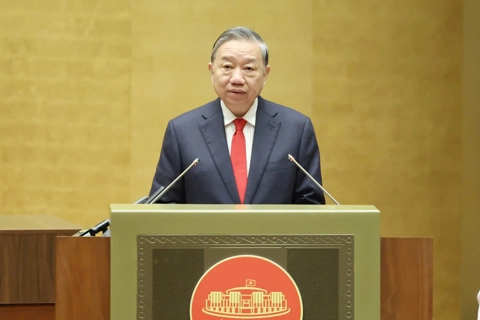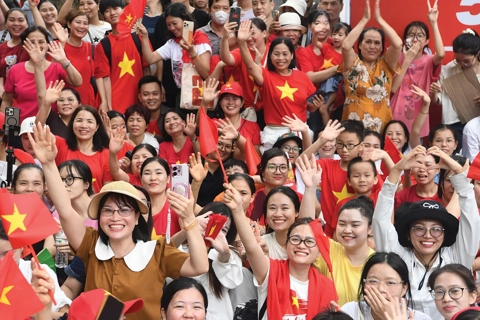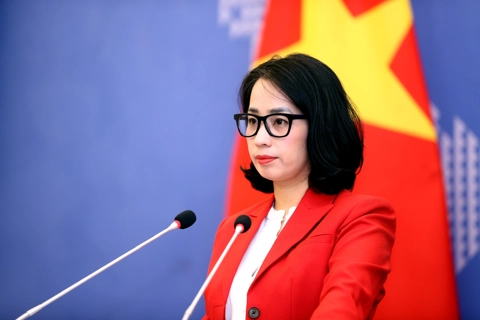EU expect to increase cooperation with Mekong countries
For the first time, a cooperation conference between the EU and Mekong countries is held in Vietnam, focusing on sustainable infrastructure and connection.
The EU will continue to promote public and private green investments in the Mekong sub-region while supporting sustainable and equitable development and post-Covid-19 recovery in the region.
| An overview of the conference. Photo: TTXVN |
Gunnar Wiegand, Managing Director for Asia and the Pacific at the European External Action Service in Brussels, shared this information at the EU-Mekong Cooperation Conference on March 16. “We want to increase our participation in the Mekong sub-region and this workshop can bring out important issues that we will consider for future cooperation programs,” he stressed.
The EU is seen as a constructive partner for the Mekong sub-region through its bilateral and multilateral cooperation programs within the Friends of the Lower Mekong frameworks.
Speaking at the conference, Ambassador Giorgio Aliberti, Head of the Delegation of the European Union to Vietnam, said many global challenges are arising in the Mekong River, making it an interesting region for solutions in the fields of climate change, water security, clean energy, agriculture, transport and infrastructure.
He added all these areas the EU is looking forward to working with regional partners as it aligns with the Indo-Pacific Cooperation Strategy and the recently launched Global Gateway initiative to develop sustainable infrastructure and connection.
For his side, Deputy Foreign Minister Pham Quang Hieu highly appreciated the initiative to organize the conference, stressing that Vietnam welcomes the participation of development partners, of which the EU is a capable and constructive one. He also wished to have more effective coordination among cooperation mechanisms.
He emphasized that the Mekong sub-region has attracted growing attention and has become a priority in the development partner's policy. In 2020, the ASEAN agenda recognized the Mekong sub-region and other sub-regional cooperation mechanisms in Southeast Asia. A sustainable, connected Mekong sub-region will actively contribute to building the ASEAN community and strengthen ASEAN's central role in the region.
Based on the assessment of major trends in the Mekong sub-region, the delegates attending the event said sustainable development in the sub-region faces common challenges such as the impacts of climate change on the river basin, especially floods and droughts, un-guaranteed water security due to the lack of an effective water resource management mechanism, and the impacts of geopolitical competition among major powers on the development of the sub-region.
Delegates proposed the Mekong countries need to adjust their development models towards more inclusive, sustainable development and green growth. They suggested the EU needs a holistic and synchronous approach to further improve the efficiency of cooperation between the EU and its member countries in the Mekong sub-region and each Mekong country.


